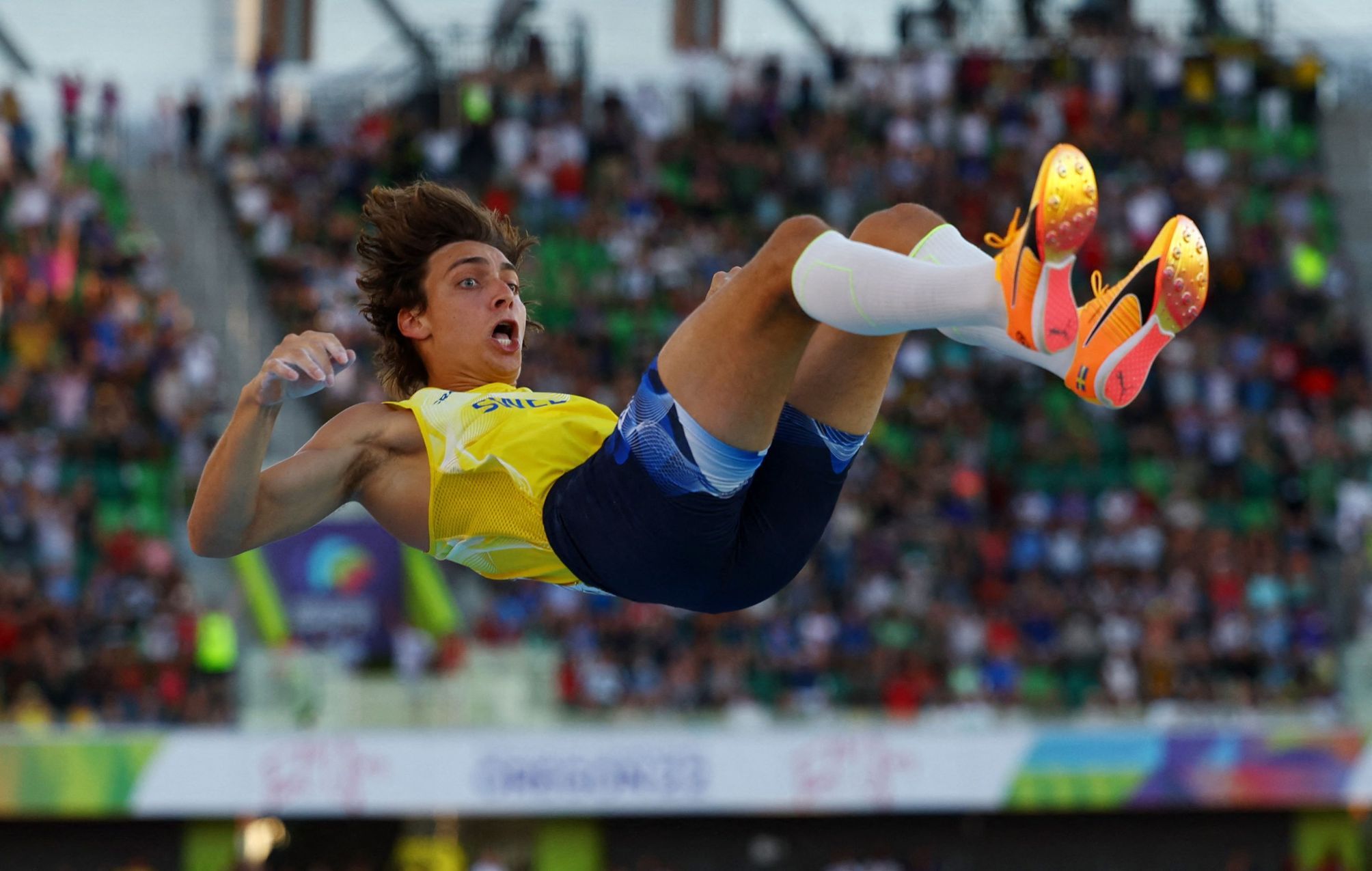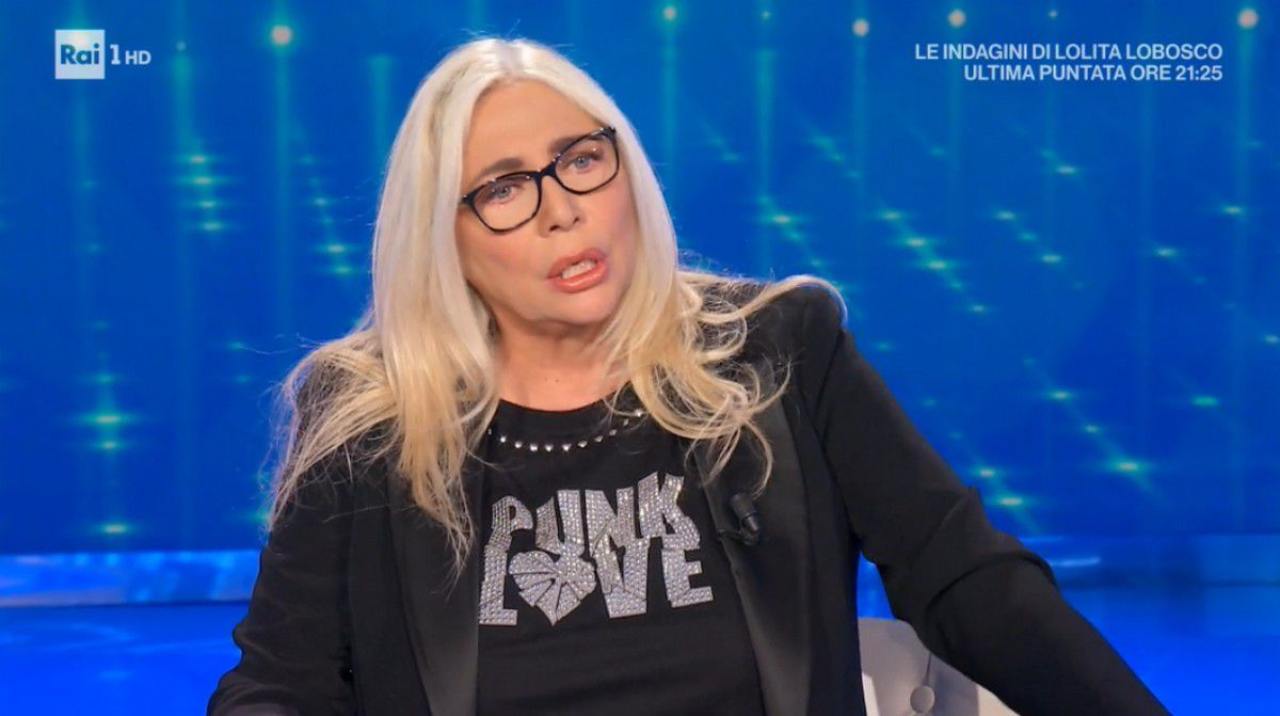Pole vaulter Armand Duplantis experienced a fairytale championship in Eugene. The American born in Swedish colors won the world title, which was the last thing he missed in the trophy collection, and then decorated his performance with an absolute world record of 621 centimeters. He improved the best open-air performance by five centimeters.
The last day of the championship brought the third Czech participation in the final. The quartet relay of Matěj Krsek, Pavel Maslák, Michal Desenský and Patrik Šorm pushed the Czech record to 3:01.63 and took eighth place.
Twenty-two-year-old Duplantis entered the historical statistics for the fourth time this season. In the hall at the meeting and at the World Championships in Belgrade, he gradually moved the world record to 620 centimeters. Shortly before the World Cup, at the Diamond League in Stockholm, he created a historical maximum of 616 centimeters in the open air, which, however, is not recognized as a world record in the pole vault.
After his performance in Eugene on Sunday, which put an end to this year’s World Athletics Championships, the outdoor is already the absolute maximum.
On the first attempt, Duplantis only looked at the bar, but on the second time he crossed it confidently. According to the TV graphics, the phenomenal Swede had an almost fifteen centimeter reserve.
In the end, the Czech quarter-finals had eight rivals in the final, because the referees additionally included Botswana in the fight for medals, which was in a non-progressive position in the run-up after a carom on the pass. The Czechs left the Poles behind and equaled javelin thrower Nikola Ogrodníková’s placing, which was the second best Czech result at this WC after Jakub Vadlejch’s bronze.
The time of 3:01.63 was also 79 hundredths of a second better than their performance from the start and at the same time a Czech record, which was achieved last year at the first league of the European team championship by the quartet, in which Jan Tesař and Vít Müller were on the first and third sections. “Nobody messed it up, we ran a great time, a national record. But that won’t be true for long, Europe is in three weeks,” Maslák told Czech Television. In the results, he would rather see the Czech quartet one place higher. “It should have been seventh, but Botswana went into the final automatically almost without running,” he noted.
In the final, which was dominated by the Americans, the Czechs were the third European relay behind the bronze-winning Belgians and seventh France. This gives them solid hopes for the European Championships in Munich in August. “We have to prepare, acclimatize back. The Spaniards and the British are missing here, the competition will be great there,” said Desenský. The women’s relay was also won by the quartet of the home team of the United States of America, for which the hurdles world record holder Sydney McLaughlin finished. The legendary Allyson Felix, who helped in the run-up, thus has her twentieth jubilee medal from the WC. It is her fourteenth gold.
The only Czech all-rounder Jiří Sýkora finished the decathlon in thirteenth place with 8107 points. After an unsuccessful first day on Sunday, he shone in the discus, when he performed the best decathlete performance in the history of the World Cup with 54.39 meters and moved into the elite ten. But then he was injured when his bar broke during the opening attempt at 480 centimeters. He left the pole vault sector with only a basic height of 460, but even with a crippled left hand he completed the javelin and the final fifteenth round. In the end, he came close to his personal best by fifteen points.
World record holder Kévin Mayer became world champion for the second time in his career. His title was decided by 540 centimeters in the pole vault and 70.31 meters in the javelin. This put him in the lead and he took control of the lead in the final 15 laps. He scored 8816 points and followed up on the triumph from the 2017 WC.
Tobi Amusanová confirmed the position of the newly minted world record holder in the final of the 100-meter hurdles race. The Nigerian sprinter, who ran a time of 12.12 seconds in the semi-finals, flew six hundredths of a second faster in the final. After fourth places at the 2019 WC and last year’s Olympics, she won her first major precious metal. She was deprived of another shift of the historical maximum due to a too strong wind at her back of 2.5 meters per second.
Jakob Ingebrigtsen became the world champion in the 5000 meters run. In the final of the championship in Eugene, the star Norwegian got his taste for silver in the 1500m, where he was surprisingly defeated by the Briton Jake Wightman, and won the second medal. For the 2018 European champion, it is the first global medal at the five kilometer distance.
For the first time this season, the octagon saw a direct fight between the best women of last year’s Olympic Games in Tokyo – home Athing Mu and Briton Keela Hodgkinson. Just like in the Olympics, in the duel between these 20-year-old girls, Mu was better. In the finish line, she repelled the onslaught of her European rival and won by eight hundredths in the world’s best time of this season, 1:56.30.
Olympic champion Malaika Mihambová from Germany defended the world title in the distance with a performance of 712 centimeters.
–


